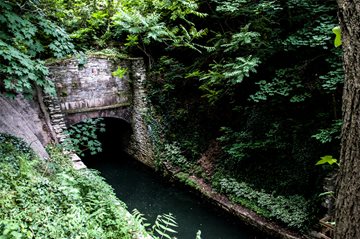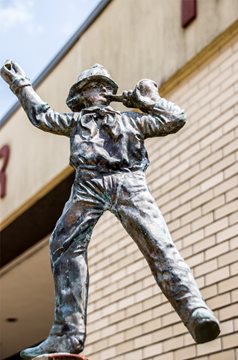Historical Sketch
EARLY SETTLERS GERMAN AGRICULTURALIST. . .

On February 16, 1813, the legislature created Lebanon County, as it now stands, from parts of Lancaster and Dauphin Counties. The choice of the name "Lebanon" stems from the deep religious nature of the early settlers of this valley, who name many of the towns and villages for Biblical places. These early settlers of this valley were German Agriculturalist attracted to the valley because of the fertile limestone solid, which reminded them of their homeland along the Rhine River in Germany. Their position here was made secure when the Scotch-Irish settlers migrated to the base of the Blue Mountains about 1720 and formed a buffer between the Indians and the peaceful German settlers.
As the county developed the Indian trails become roads. A waterworks was built in Schaefferstown in 1750, probably the first waterworks in the United States, and at the same time, the county seat and only city in the county of Lebanon was laid out by George Steitz, first known as Steitztown. It was later named Lebanon in 1758, incorporated into a borough in 1799, and granted a city charter in 1886. Lebanon has always been a center of iron and steel manufacturing, reaching back to the Revolutionary War, when the busy Cornwall Furnace supplied much of the iron for the cannons and munitions used by Washington's Army.
Lebanon has always been a center of iron and steel manufacturing, reaching back to the Revolutionary War, when the busy Cornwall Furnace supplied much of the iron for the cannons and munitions used by Washington's Army.
The social life of the valley showed early signs of healthy activity in the voluntary fire companies, which were vital to the welfare of the community. The Cedar company, organized July 17, 1773, contributed most of its members to the Revolutionary War in 1776, and since then Lebanon County has sent many men into the service of our country.
Historical Sketch by Frederick S. Frantz
displayed on wall in main lobby of the
Lebanon County-City Municipal Building
Lebanon, Pennsylvania
